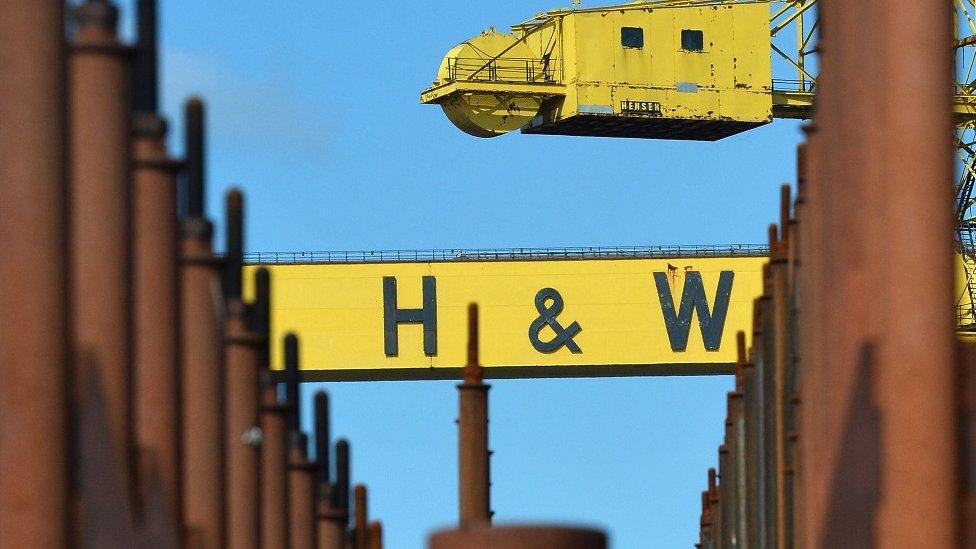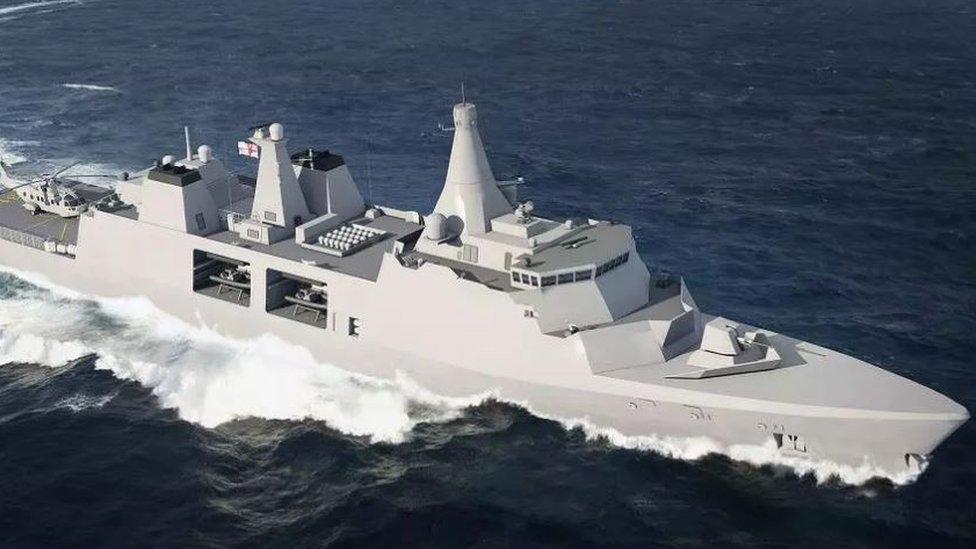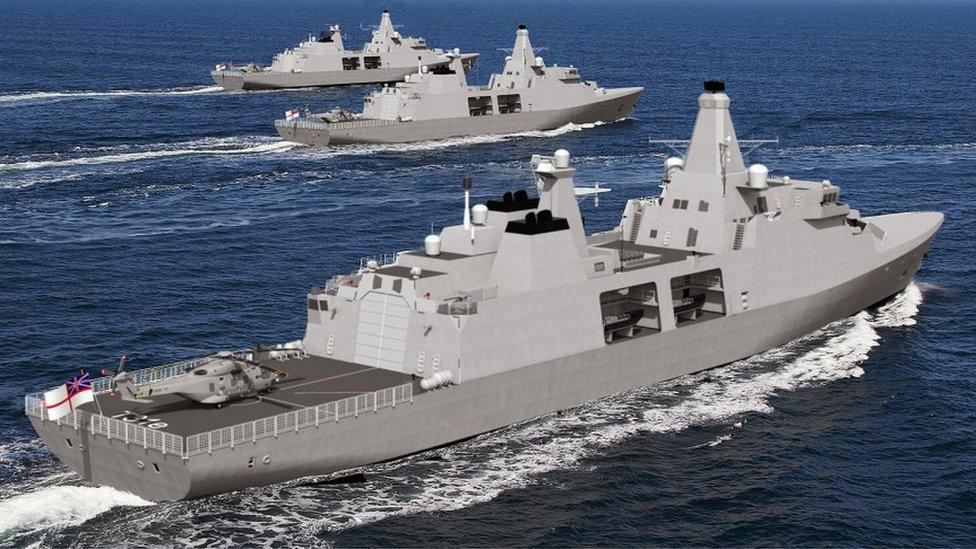Harland and Wolff part of Royal Navy warship order
- Published

A consortium which includes Harland and Wolff has won a £1.25bn contract to build five warships for the Royal Navy.
Harland and Wolff, the shipyard best known for building the Titanic, is in administration and up for sale.
The consortium is led by defence firm Babcock, who last month insisted Harland and Wolff's financial difficulties would not affect its bid.
Work on the Type 31e frigates is due to begin by the end of 2019, with the first ships delivered in 2023.
With a price ceiling of £250m per ship, the aim is to maintain the size of the Navy's surface fleet and generate export orders.
The deal secures hundreds of jobs at Rosyth in Fife, where the ships will be assembled, with construction work spread between yards across the UK.
It is expected to sustain five to six years of work at the Belfast shipyard through steel fabrication alone.

Babcock has been named preferred bidder with its Arrowhead 140 design
Susan Fitzgerald, from the union Unite, said it "very much highlights that the shipyard in Belfast has a future as a viable shipbuilder".
She said Harland and Wolff's workforce "have kept this shipyard in the game" and called for urgent intervention by the government to get members back to work.

Analysis by BBC News NI Economics and Business Editor John Campbell
It is undoubtedly positive news for the yard but there are still a number of steps to take.
Firstly the administrator needs to find a buyer and secondly that buyer will need to make their intentions clear.
What will their vision be, what sort of marine engineering work will they intend to do in Belfast?
Remember that last month, Babcock insisted Harland's financial difficulties would not affect its bid because its "flexible build approach" could accommodate "a range of delivery sites".

- Published12 September 2019
